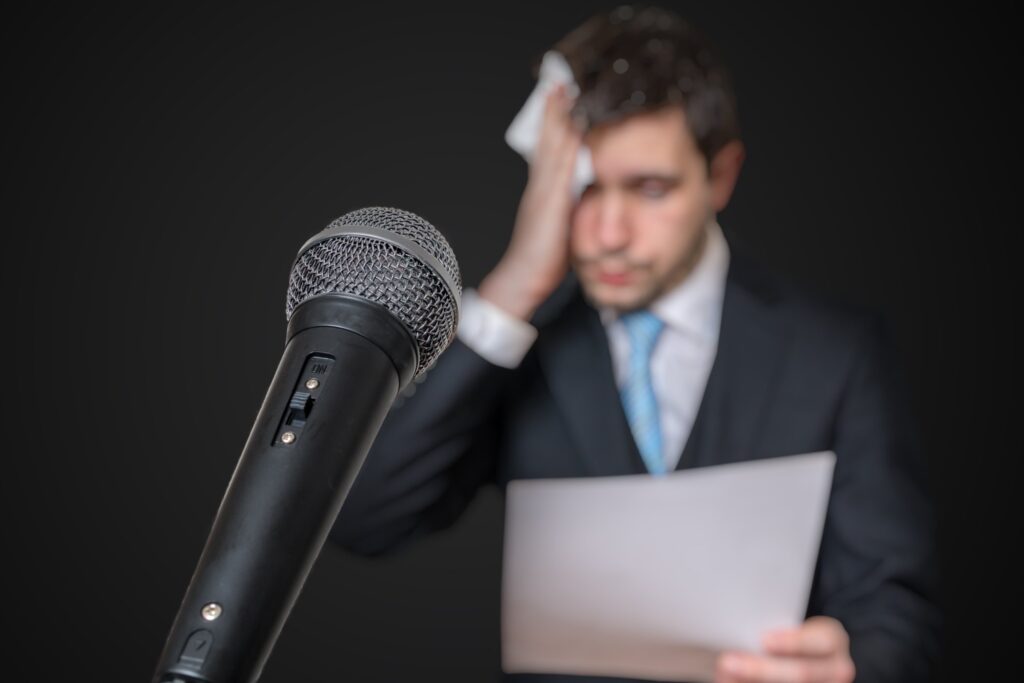
Fear of public speaking (Glossophobia)
Glossophobia is a subset of social phobia, the fear of social situations. Most people with glossophobia do not exhibit symptoms of other types of social phobia, such as fear of meeting new people or fear of performing tasks in front of others. In fact, many people with glossophobia are able to dance or sing on stage, provided they do not have to talk. Nonetheless, stage fright is a relatively common experience in those with glossophobia.
Glossophobia can even occur in front of just a few people. In a child, it may present as the child desperately hoping they won’t get called on in class to answer a question. It may cause you to avoid situations where you may become the focus of attention. This can have a dramatic effect on your life.
Symptoms
Physical symptoms of glossophobia may include:
- Sweating
- Increased heart rate
- Dry mouth
- Difficulty breathing
- Nausea
- Headache
- Muscle tension
- Need to urinate
Causes of glossophobia
Although the fight-or-flight response worked well when humans had to fear enemy attacks and wild animals, it isn’t effective in a meeting room. Getting to the root of your fear may help you take effective steps to manage it.
Many people who have a strong fear of public speaking fear being judged, embarrassed, or rejected. They may have had an unpleasant experience, like having given a report in class that didn’t go well. Or they’re being asked to perform on the spot with no preparation.
Though social phobias often run in families, the science behind this isn’t understood. A 2002 studyTrusted Source reported that breeding mice that show less fear and anxiety resulted in offspring with less anxiety. But more research is needed to assess whether social phobias are hereditary.
Testing conducted by the National Institute of Mental HealthTrusted Source found that the brains of people with social anxiety have a heightened response when negative comments were read to them. The affected areas were those responsible for self-evaluation and emotional processing. This heightened response wasn’t seen in people without the disorder.
Treatment Options
Glossophobia can be successfully treated in a variety of ways. One of the most common is cognitive-behavioral therapy (CBT). You will learn to replace your messages of fear with more positive self-talk. You will also learn relaxation techniques and what to do when you experience a panic attack. You will gradually confront your fear in a safe and controlled environment, which is a major component of exposure therapy.
Medications may also be prescribed to help you get control of your fear. Medication is generally used in conjunction with therapy rather than on its own.
Once you have successfully worked through the worst of your fear, you might want to consider joining a speaking group such as Toastmasters. These groups can help you polish your public speaking skills through repetition and constructive criticism from fellow members. Building confidence in your ability to speak in public can further reduce your anxiety. Finding a supportive group of like-minded people can go a long way to making you feel more comfortable speaking in public.
While many people have some degree of fear of public speaking, glossophobia can be life-limiting. The success rate for treatment is extremely high. The first step is to find a therapist that you trust who can help you work through the fear.
